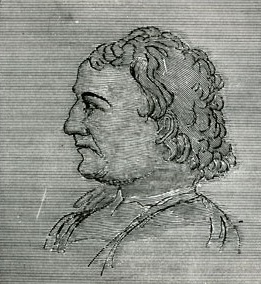Melancton Smith facts for kids
Melancton Smith (born May 7, 1744 – died July 29, 1798) was a smart businessman and a lawyer from New York. He was chosen to represent New York in the Continental Congress, which was like an early American government. People admired him for being intelligent, fair, and reasonable. By 1787, he was highly respected in New York. Many experts today see him as one of the most important thinkers and speakers for the Anti-Federalists. He also played a big part in getting the U.S. Constitution approved.
Contents
Melancton Smith's Life Story
Melancton Smith was born in Jamaica, Long Island, New York. His parents taught him at home. When his family moved to Poughkeepsie, New York, he started working in business. Smith was always interested in deep thoughts about life and religion. In 1769, he helped start the Washington Hollow Presbyterian Church and bought a seat there.
Early Career in New York
On May 22, 1775, Smith became a delegate, or representative, to the first New York Provincial Congress in New York. This was a group that helped govern the state during the American Revolution. He joined the American army on June 30, 1775, helping to organize a group called the Dutchess County Rangers.
In February 1777, he became one of three people on a special group in Dutchess County. Their job was to find and stop anyone working against American freedom. For six months, he made people promise loyalty, arrested suspects, and checked on those who supported the British. At the same time, he was also the Sheriff of Dutchess County. He kept this job until 1781. He even bought land that had been taken from people loyal to Britain.
The next year, Smith was appointed as a judge in a local court called the Court of Common Pleas. He was also elected as a Justice of the Peace in Dutchess County. He held both these jobs until 1784, when he and his family moved to New York City.
His Role with the U.S. Constitution
Melancton Smith moved to New York City in 1784 and became a well-known businessman. He helped start the New York Manumission Society, a group that worked to end slavery. From 1785 to 1787, he served in the Continental Congress. He also helped create the Northwest Ordinance of 1787, a plan for new territories to become states.
In 1788, Smith was the most important Anti-Federalist at the state meeting in Poughkeepsie. This meeting was held to decide if New York would approve the new U.S. Constitution. The Anti-Federalists were people who worried the Constitution gave too much power to the national government. Smith argued strongly against the Constitution, debating with Alexander Hamilton, a leader of the Federalists. Smith was so good at debating that people called him "one of the ablest debaters in the country."
After New Hampshire and Virginia approved the Constitution, and after getting a letter from Nathan Dane, Smith realized New York had to approve it too. He believed New York couldn't wait for changes to be made because of threats from other countries. His vote for the Constitution, even though he wanted changes, surprised many Anti-Federalists. It also angered Governor George Clinton.
Smith was one of the few important landowners and businessmen among the Anti-Federalists. He continued to support Governor Clinton's political group. In 1791, he was elected to the New York State Assembly. In 1792, he traveled around the state to support Clinton against John Jay. Smith died in 1798 during a yellow fever outbreak in New York City. He is buried in Jamaica Cemetery in Queens, New York. His grandson, Melancton Smith, became a naval officer during the American Civil War.
Important Writings: The Anti-Federalist Papers
Melancton Smith is thought to be the writer of some very important Anti-Federalist essays. These essays were written to convince people to vote against approving the Constitution. Many people used to think that Robert Yates wrote the essays signed "Brutus" and that Richard Henry Lee wrote "The Federal Farmer." However, recent studies have questioned this.
A detailed computer analysis of writings by Smith, Yates, Lee, and other Anti-Federalists was done by John Burrows. He found that Smith was most likely the author of both sets of essays. Burrows noted that "Brutus is consistently unlike... Yates's other writings." But, "the resemblance to Smith is strong and unfaltering." Also, "All of the tests employed upheld Smith's authorship of Federal Farmer's papers, while the claim for Richard Henry Lee found no support at all."
Some experts, like Michael Zuckert and Derek Webb, think it would be strange for one person to write two different sets of essays on similar topics at the same time. They suggest that Smith might have worked closely with other Anti-Federalists. They believe it's more likely he wrote one set of essays, while someone else close to him wrote the other.
 | Jessica Watkins |
 | Robert Henry Lawrence Jr. |
 | Mae Jemison |
 | Sian Proctor |
 | Guion Bluford |


